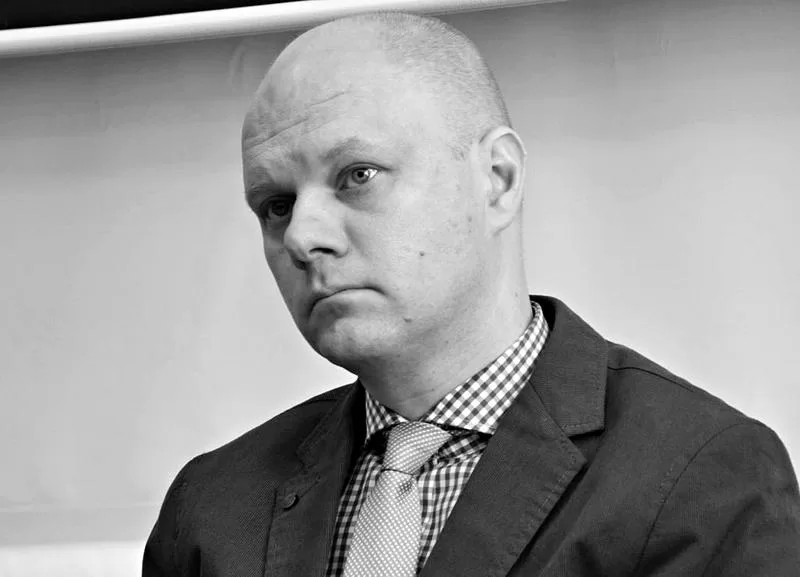The meeting between the Russian dictator and the North Korean tyrant marks the deepening of a foreign policy direction: isolation leads to the consolidation of alliances with pariah states in the international community. Along with Iran, North Korea becomes a second strategic partner of Russia. Ignoring the international sanctions to which it itself subscribed, Russia chooses to support a regime that has no other reason than the promotion of nuclear terrorism. The meanings of this visit are as clear as possible. Putin’s Russia no longer feels bound by any of its previous commitments. Russia’s aggression has a global stake – it is the destabilization of the system based on Western values. The Russian revisionist state is, in this struggle, alongside the North Korean one. Fortress Russia stretches a bridge to this Stalinist territory of barbarism and paranoid weaponry.
John StanomirPhoto: Personal archive
Russia defies the world
Entered into the logic of the war economy, able to withstand sanctions with the help of its allies, Putin’s Russia has become a huge barracks over which the shadow of Stalinism reigns. As in the tense moments of the “cold war”, the confrontation with the West is the raison d’être of the Russian state. Retrenched behind its vast defense lines, Russia builds its strategy for global confrontation.
Because the war in Ukraine is the last historical chance to preserve the integrity and prestige of the Russian empire. Accepting a peace that would confirm the defeat would not only mean the end of Putinism, but also the end of the entire history of the Russian state itself.
Made up of barbarism, thought of as a machine of internal oppression and imperial expansion, the Russian state cannot imagine itself in any other position than that of today. Putin’s Russia is not the creation of an isolated monomaniac, but the culmination of the historical process of returning to the sources of imperial and totalitarian aggression. This is why another Russia is, at this moment, impossible to conceive. The absence of a political alternative to Putinism, the indoctrination of the Russian nation, popular passivity, the seduction of grandeur, all of these explain the current regime’s ability to wage a lasting war. It is the largest military operation carried out by Russia after 1945: the vestiges of the westernization of Russian society are erased under the tracks of the tanks fighting in Ukraine. This war is the culmination of an unprecedented autocratic regression in Russian modernity.
The internal dynamics are responsible, therefore, for the establishment of a fortress whose mission is to defy the world that does not accept the Russian yoke. Isolated from the West, turning its back on a Europe with which it has been in symbiosis for centuries, today’s Russia is, more and more, a despotic state in the Eurasian sphere. By language, by vocation, by alliances, it no longer has anything in common with a European state. Vladimir Putin’s fortress is broken from Europe, in the name of the never-abandoned imperial destiny.
Russian logic enters into the dynamics of a long-term war. Russia is counting, premeditated and programmatically, on the gradual weakening of the cohesion of the alliance that supports Ukraine. The asymmetry is obvious: Russia is a war economy, while Western states cannot choose this path of general armament. Liberal democracies are not allowed, at this moment, to mobilize the entire society.
Beyond the military dynamics on the ground, Russia looks to this future of uncertainty and unrest. Its autocratic monolithism is ready to exploit the cracks that appear in the bloc of nations that oppose it. Insidious propaganda is one of the weapons that Russia is refining, in Soviet descent. The fight for peace becomes, in these moments, a cause that serves only Russia and its empire.
The emergence of a permanent division of Ukraine would not be the beginning of peace, but only the beginning of another war, one that will never truly end. As Russia deepens in international aggression and internal repression, it becomes another North Korea: its energies are put at the service of a criminal goal. Any agreement that would legitimize Russia’s illegal annexations would be the occasion for the birth of a new Korean demarcation line, with dramatic long-term consequences. Illusions of peace would feed Russian imperialism. –Read the entire article and comment on Contributors.ro

